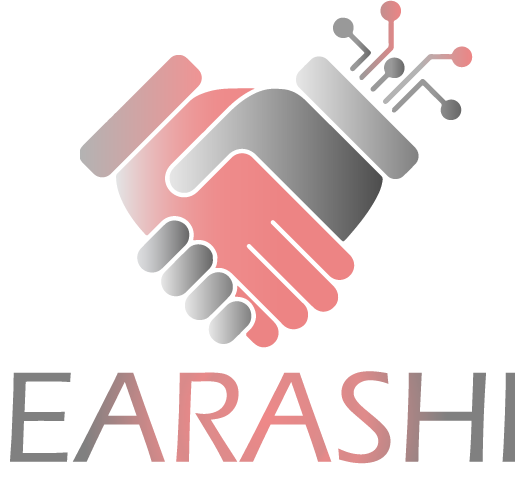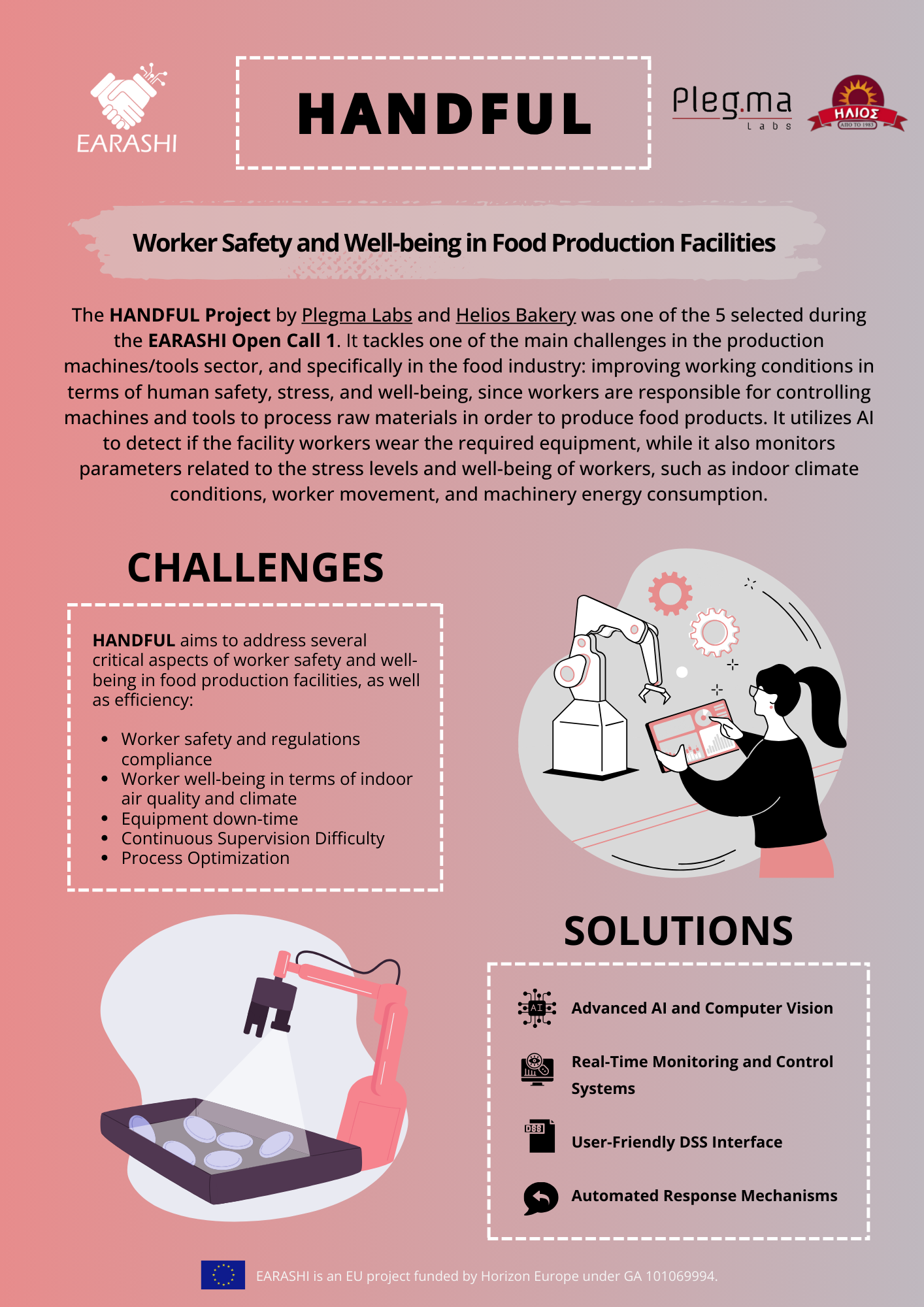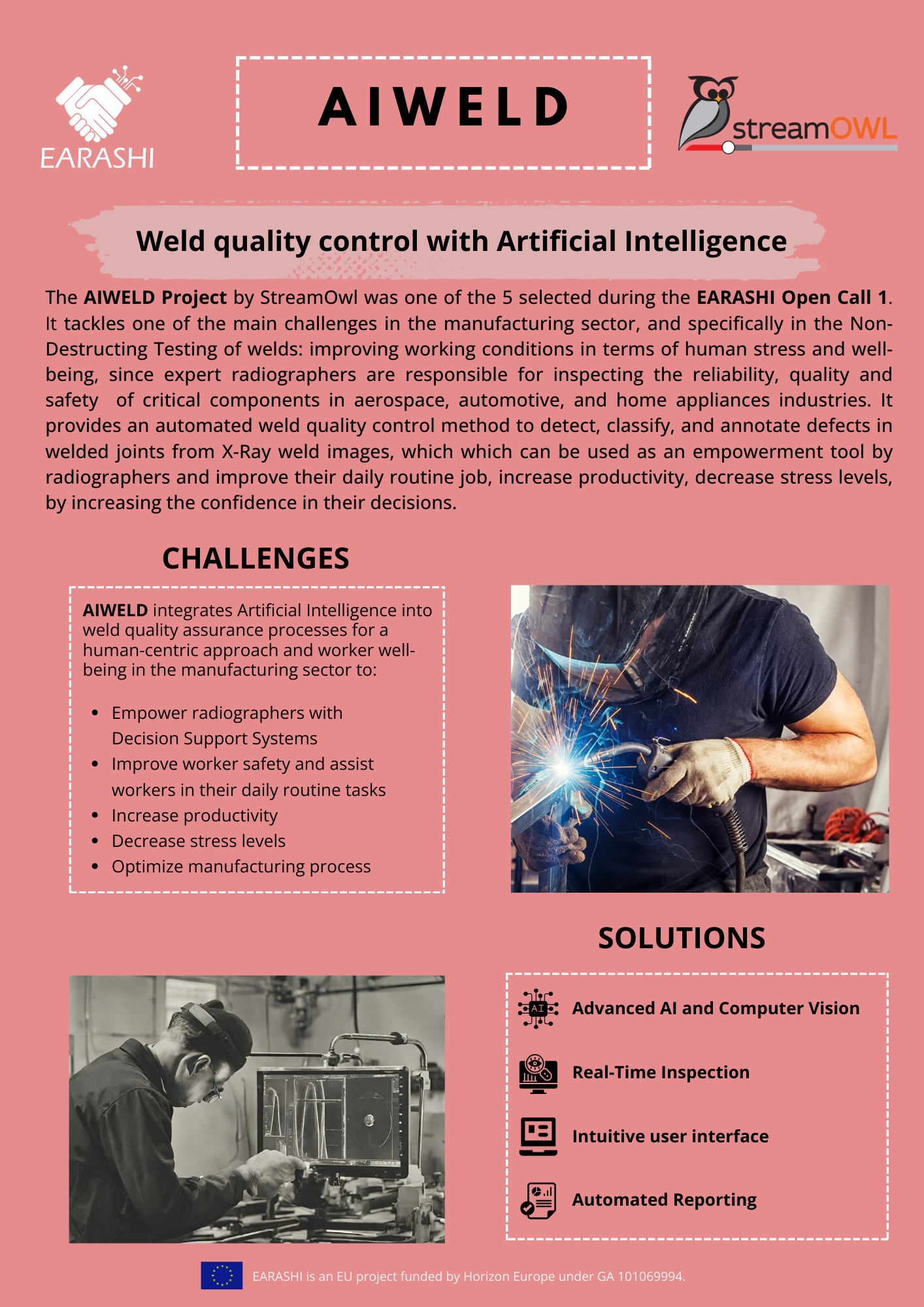
1. Auto-Ant
Challenge 8, Building Block 11.2
ANT Machines develops automated heavy-duty robots for yard operations. They address the issues of driver shortage, sustainability, and operational efficiency and are intended to replace conventional terminal trucks to make intralogistics more environmentally friendly and resilient. Within EARASHI, they therefore intend to address the Challenge 8: Automation for the optimization of intra-factory logistics. The existing ANT Robot prototype (TRL 4) has been tested with various types of equipment used to move heavy loads in closed perimeters of commercial and logistical sites (trailers, container chassis, roll-trailers) in a remote-controlled mode. Developing a fully-automated solution will increase efficiency of the intralogistics flow of goods and reduce the workload on workers.
Read more
Working with the EARASHI consortium, specifically the Autonomy Toolbox (FM-SLAM) by Flanders Make, and the available engineering system integration support, we can increase the ANT TRL to 7 and perform demonstration of autonomous operations in a relevant environment with an interested stakeholder – the Port of Tyne in Newcastle, UK. Deployment of this technology would allow optimization of the internal flow of materials that need to be moved between two locations on one site, increasing traceability, predictability, and overall throughput while decreasing unproductive downtime. Removing people from direct operations with heavy equipment will increase onsite safety and fully electric operations will support decarbonization of the facility. AutoANT will also address associated challenges such as:
•Items and good flow optimization and Algorithms for flow optimization – by optimizing yard routes and timing of operations
•Fleet management and Reduction of operator travel – by making sure that the best-fit unit takes the assignment
•Simultaneous Localization and Mapping algorithms – by using the FM-SLAM, leading to lower deployment time and the necessary localization level to ensure safe swarm operations.
2. MAS-AI
Challenge 1, Building Block 3
In the project by Spin-Robotics, a fully operational mobile screwdriving platform to demonstrate both assembly and dis-assembly of products are developed. The increasing focus towards re-manufacturing and automation of dismantling of products, requires new safe collaborative dis-assembly technologies. This is highly relevant in the marked where small agile robotics solutions are requested. Customer requests solutions with a minimum of integration and programming costs. However, these cost-efficient solutions must not compromise quality, why quality assurance system must be an integral part of the solution. In the field of automatic and semi-automatic screwdrivers, the torque at which screws are tightened and loosened with, is important to ensure the process quality. Traditionally, this torque is measured using an expensive and bulky, calibrated inline torque sensor that is an integrated part of the tool. Existing solutions with integrated torque transducer are too expensive for this new turn-key solution drive marked. To address this issue, Spin-robotics aims to achieve similar performance without using a torque sensor but instead applying AI technologies to precisely estimate the torque directly in the screwdriver’s controller firmware.
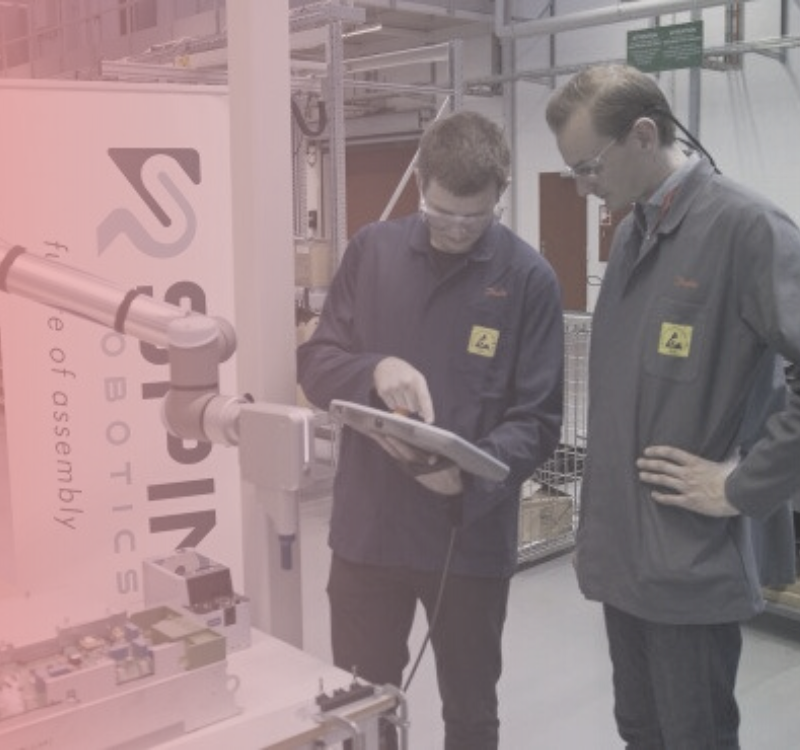

3. HANDFUL
Challenge- 6, Building Block 23

This project by Plegma Labs and Helios Bakery tackles one of the main challenges in the production machines/tools sector, and specifically in the food industry, is to improve working conditions in terms of human safety, stress, and well-being since workers are responsible for controlling machines and tools to process raw materials in order to produce food products. Human supervisors play a vital role in this sector since they monitor multiple parameters in a food production facility. However, they cannot continuously be present near every single worker in order to make sure that all the safety and well-being precautions are taken and all the procedures are optimized.
Read more
The HANDFUL project utilizes AI techniques, such as computer vision, to detect if the facility workers wear the required equipment, e.g. protective gloves, glasses, helmets, etc., while it also monitors parameters related to the stress levels and well-being of workers, such as indoor climate conditions, worker movement, and machinery energy consumption. Specifically, the HANDFUL system will use “BB23: Manual Task Recognition” to address Challenge 6 “Collaboration between AI and Human supervisors to solve complex problems” to detect worker hand placement as well as proprietary AI models to automate human supervision regarding machinery in food processing and production facilities. Specifically, the offered services will be integrated in a holistic AI-enabled DSS for food production facilities, with an easy-to-use dashboard interface being offered to supervisors. The envisioned AI models will help to solve the complex problem of combining computer vision data with machinery energy consumption data and indoor climate condition data in order to improve worker safety and well-being. The solution will be demonstrated in a food manufacturing industrial pilot site in Greece, which will also provide business intelligence to the DSS regarding its specific needs and process flows, towards process optimization and environmental waste reduction through the HANDFUL services.
4. aiweld
Challenge 6, Building Block 16

Arc welding has been a fundamental and key technology in many industrial manufacturing industries (aerospace, automotive, home appliances, etc.) for years and the development of efficient automated weld quality control methods has been the focus of research (especially in the era of Industry 4.0) to increase the quality of the products and detect defects in the welded joints. Radiography testing is a popular Non-Destructive Testing (NDT) method for weld quality control; however, it is still performed with primitive means, mostly by human visual inspection of X-Ray images by certified radiographers, which makes the whole process inefficient, non-scalable, and costly. In this project, Stream Owl targets Challenge 6 of the EARASHI Open Call on “Collaboration between AI and Human supervisors to solve complex problems”.
Read more
More specifically, we aim at integrating Artificial Intelligence (AI) with traditional practices and experts’ knowledge to transform radiography testing (a process that relies on human experience and skills) into an objective decision support system fully integrated in the industrial weld quality control process, which can be used as an empowerment tool by radiographers and improve their daily routine job, increase productivity, decrease stress levels, and improve the quality of the final products. The development of the weld quality assurance method is based on the preparation of a very large dataset of X-Ray weld images, the adoption of latest developments in Deep Learning and Artificial Intelligence, and the testing of the software tool with expert radiographers to ensure that the final product can increase their productivity and ensure that it can be used as an efficient weld quality assurance method.
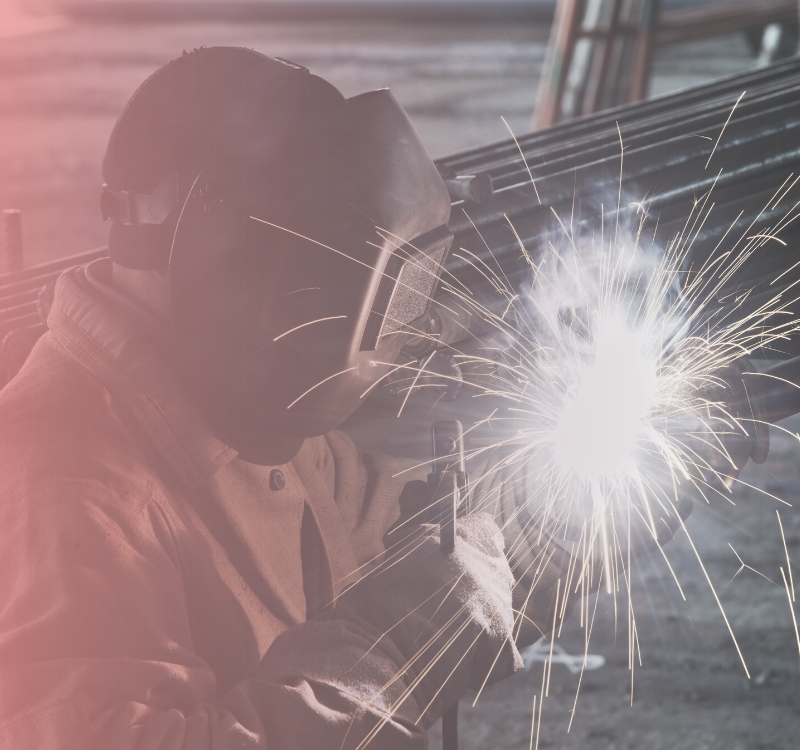
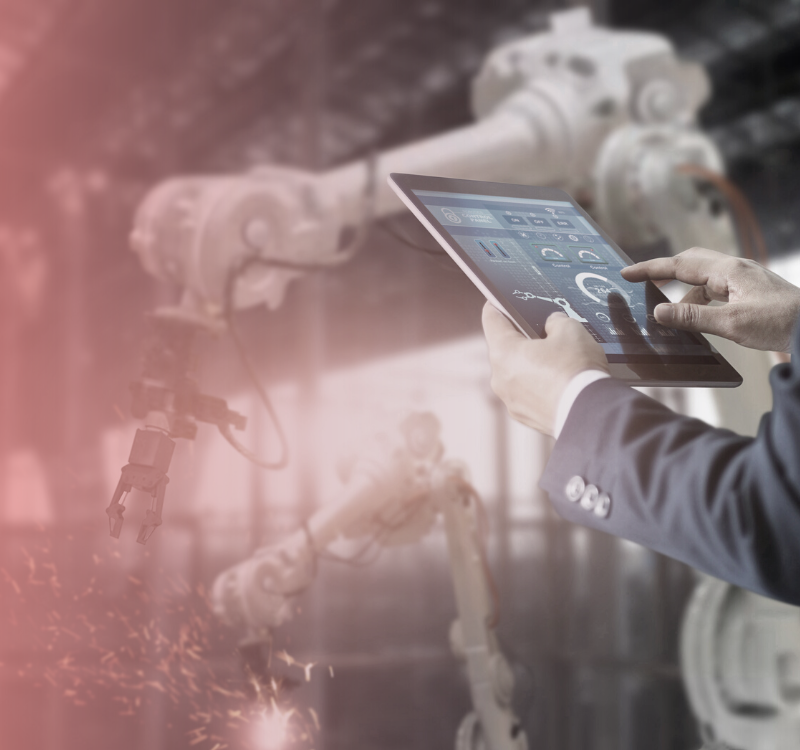
5. MANIAC
Challenge 6, Building Block 13

This project is brought forward by Bytefabrik.AI GmbH. Large automated production plants comprising several machines and robots require permanent maintenance due to a large number of wearing parts. A common problem in the manufacturing industry is shortage of skilled workers. As a result, workers are often responsible for the operation of multiple assembly lines at the same time. This leads to a high amount of worker stress and reactive behavior, since workers are often forced to turn into “firefighting mode”, solving one critical problem after the other. To counter this problem, predictive maintenance applications have become an important driver to reduce downtime by better scheduling of maintenance operations. However, the uptake of such applications is still hindered by a lack of data science & AI expertise especially for SMEs.
Read more
Focusing on challenge 6, the overall goal of the MANIAC project is the development of the Manufacturing Analytics Copilot, which continuously analyses process parameters from machines, robots and assembly lines in real-time. It automatically detects relevant situations and creates “Data Stories”, which shop floor workers can use to quickly understand problems and prioritize maintenance. As a flexible AI system, the manufacturing copilot reduces stress at work and increases productivity by reducing system downtimes and failures. The developed solution will be based on Apache StreamPipes, an open source toolbox for industrial data analytics with currently more than 20.000 downloads. StreamPipes was initiated by the founders of Bytefabrik.AI. Following an open core business model, Bytefabrik.AI offers support for Apache StreamPipes and commercial extensions. Our exploitation strategy foresees to extend our open source software with novel predictive maintenance algorithms and additional connectors for industrial machinery, further increase the visibility of the open source project and to extend Bytefabrik.AI’s commercial product portfolio with the manufacturing analytics copilot as an innovative add-on.
